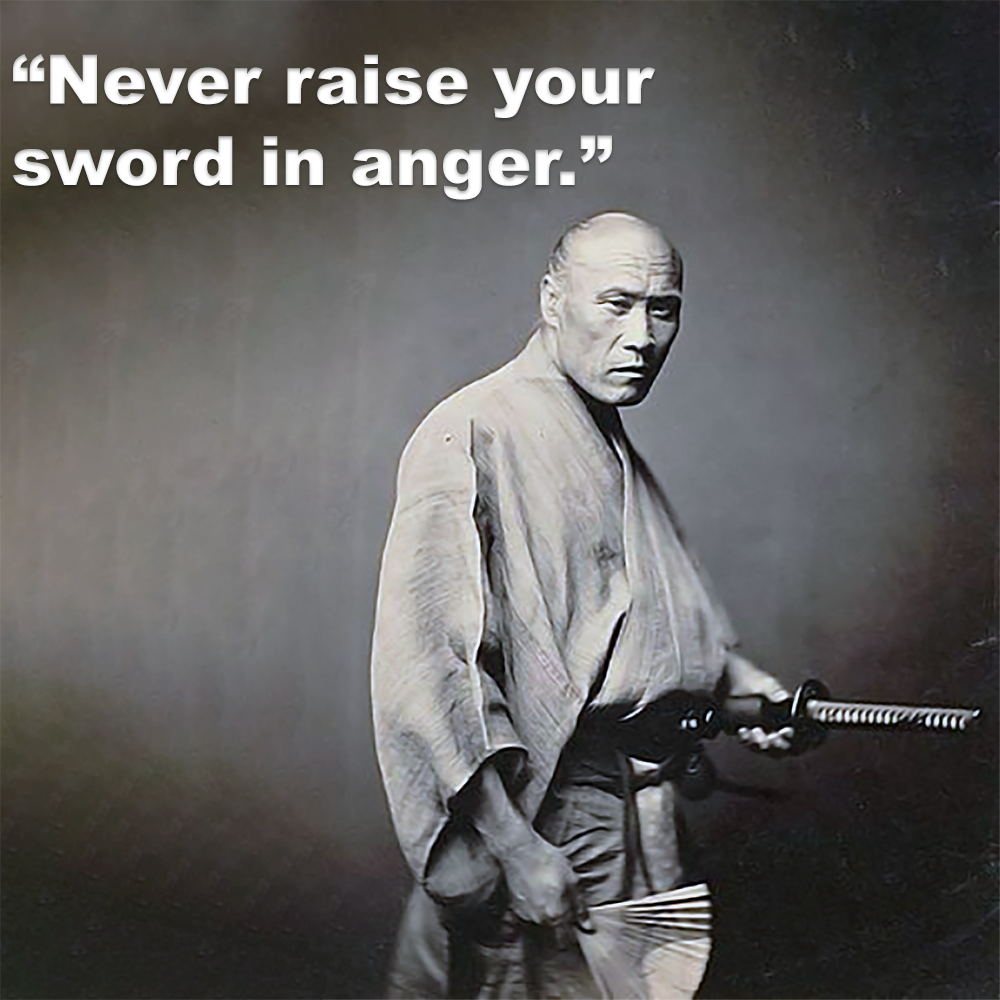
Okinawa is rich in moral stories, and karate masters enjoy the telling of these stories. One such story is that of the poor fisherman, whose shrine stands today in a small area south of Naha, Itomen.
.
Prior to annexation by Japan, Okinawa was known as the Ryukyu Kingdom. The legend of two men whose paths crossed over four centuries ago, and ultimately led to wisdom and peace.
.
The poor fisherman had borrowed money from a Japanese samurai during the days of Japanese occupation to buy a fishing boat, nets and tools. When the day came to pay his debt the fisherman had nothing to offer, because the catches had been poor and the fisherman had no money.
.
The samurai, enraged, drew his sword. As he prepared to cut the fisherman down, the poor man cried out, “put back your hands when you get mad, and calm your anger when you want to strike me.”…..”Never raise your sword in anger”. The samurai was so taken aback by this statement that he freed the fisherman.
.
The samurai departed the Ryukyu Islands and it was night when he returned home. The samurai discovered a pair of man’s sandals outside his home and on entering his house he saw a stream of light coming through his bedroom door. He tiptoed to the room and peered around the door; there he saw his wife in bed and lying next to her, to his horror, he saw another samurai.
.
Angry and suspicious his wife was sleeping with another man, he drew his sword and entered the room to slay him.
.
He was preparing to charge the stranger when the fisherman’s words came back to him, “If you attack, never be angry. If your angry, do not attack.”
.
He left the room and then loudly announced his return. His wife came out to greet him, followed by his mother dressed in men’s clothing. She explained that she had dressed as a man so as to frighten away any intruders.
.
The following year, the samurai returned to the Ryukyu Kingdom, immediately going to the fisherman’s home. The fisherman came to the samurai with the money he owed, explaining he had good fishing catches this time. “Keep the money”, said the samurai, “It is I who owe you, not the other way around. I’ve come to see you to say thank you for saving my family.”
.
Rejecting the fisherman’s insistence the money be repaid, the two finally decided to bury the money inside a nearby cave, and make a shrine there. They declared it to be a spot for prayer to the safety of fishing and fisherman, and to promote village peoples’ lives. That spot is ‘Hakugindo’, where today thousands of people go to pray.
.
We see then, in Okinawan karate, not only the blending together of the two great martial traditions of China and Okinawa, but also the spirit and cultural heritage of the Okinawan nation. The peaceful stoicism of a people who have faced the continual occupation of their island by greater nations is embodied in the theory and practice of Okinawan karate.
.
Attribute the analogy; “Never raise your sword in anger” to your karate. ![]()
.
.
